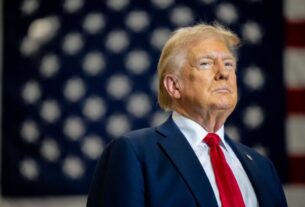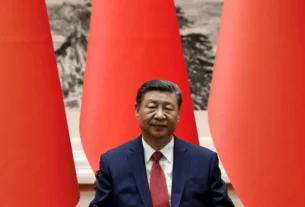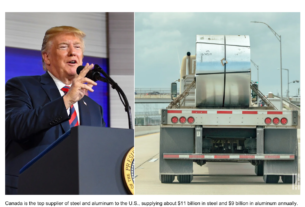China has criticized U.S. tariff increases at a World Trade Organization (WTO) meeting. Officials argue that President Donald Trump’s new trade policies could harm the global economy. Beijing warns that escalating tariffs may lead to a global recession.
“These tariff shocks disrupt supply chains and hurt economic stability,” a Chinese representative said. The U.S. recently announced higher tariffs on Chinese steel, semiconductors, and electric vehicles. Washington says these measures protect American industries from unfair competition.
China has filed a formal complaint at the WTO. Beijing argues that Trump’s trade policies violate international agreements. Chinese officials say they will respond with countermeasures to defend their economy.
The U.S. defends the tariffs as necessary for economic security. The Trump administration says unfair trade practices have cost American jobs and hurt domestic industries. Officials argue that China’s government subsidies create an uneven playing field.
China warns that retaliatory tariffs could impact global markets. Economists fear that escalating trade disputes will slow economic growth and increase inflation. Some analysts predict a drop in global manufacturing output and trade volume.
European leaders have expressed concern over rising trade tensions. The European Union has called for negotiations to prevent further economic damage. Some countries worry that supply chain disruptions will raise consumer prices and hurt businesses.
China is considering restrictions on key exports. Officials have suggested limiting shipments of rare earth minerals, which are essential for U.S. technology and defense industries. A supply cut could impact the production of electronics, batteries, and military equipment.
Global markets have reacted to the tariff dispute. Stock prices in major Asian and U.S. markets have declined as investors anticipate further economic uncertainty. Some businesses are adjusting their supply chains to prepare for potential trade barriers.
The WTO has urged both sides to seek diplomatic solutions. Trade disputes between the world’s two largest economies could have long-term effects. China warns that continued tariff hikes could push the world toward recession.
Trump has defended his trade policies as necessary to protect American industries. He argues that China’s trade practices have hurt U.S. workers for decades. His administration believes tariffs will force China to negotiate fairer trade terms.
China insists that the U.S. approach is damaging global trade. Officials argue that increasing tariffs will not change their economic policies. They claim the Trump administration is using trade restrictions for political purposes.
Some American businesses have raised concerns over the tariffs. Importers warn that higher costs will be passed on to consumers. Some manufacturers fear losing access to affordable Chinese components.
For now, trade tensions between the U.S. and China remain high. The Biden administration had previously sought to ease trade disputes, but Trump’s return to office has changed U.S. policy. China is expected to announce further countermeasures in the coming weeks.
The WTO remains a key battleground for the dispute. Both nations continue to argue their cases in international trade forums. The outcome of this conflict could shape global trade policies for years to come.
U.S. and Chinese officials are expected to meet for further discussions. However, neither side has signaled a willingness to compromise. Trade experts warn that the standoff could escalate if no agreement is reached.




